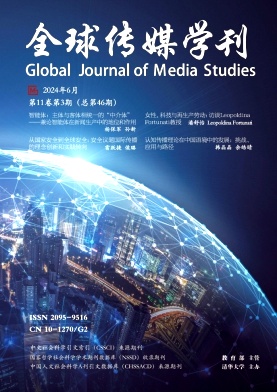Making a “New Path”: Global Communication and the Possibility of Constructing Consensus through Common Experience
引用次数: 0
Abstract
讨论“人类命运共同体”共识建设及其理想的全球传播问题时,我们面临的重要挑战之一是来自传统国际关系话语中潜藏的霸权中心主义秩序观。这种秩序观将国际关系的主题理解为国家间的软硬实力竞争。这显然无法真正用来理解“人类命运共同体”背后传承的,具有强烈辩证法自主意识的国际主义精神。本文提出,讲述“人类命运共同体”应当从“共同经历”入手,突出在全球发展过程中主权国家发挥的作用及其发展的不平等现状。这种视角将共同经历置于历史中心。与霸权中心的视角不同,建立在共同经历基础上的全球秩序想象一方面承认不同国家在通往现代化进程中的差异性状态;另一方面,更关注现代化的历史维度,强调不同共同体之间在现代化进程中由于“共同历史遭遇”而形成的共同问题、发展任务与政治诉求,并由此突出强调构建共同体认同是一个在漫长历史中自然发生的动态进程。开辟“新路”:全球传播与共同经验构建共识的可能性
One of the important challenges we face when discussing the construction of a consensus on a "community with a shared future for mankind" and the global dissemination of its ideals is the hegemonic order view hidden in traditional international relations discourse. This view of order interprets the theme of international relations as the competition of soft and hard power between countries. This obviously cannot be truly used to understand the internationalist spirit inherited behind the "community with a shared future for mankind", which has a strong sense of dialectical autonomy. This article proposes that the story of a "community with a shared future for mankind" should start with "shared experiences", highlighting the role played by sovereign states in the global development process and the unequal status of their development. This perspective places shared experiences at the center of history. Different from the perspective of hegemonic centers, the global order imagination based on shared experiences acknowledges the different states of different countries in the process of modernization; On the other hand, more attention is paid to the historical dimension of modernization, emphasizing the common problems, development tasks, and political demands formed by different communities in the process of modernization due to "common historical encounters", and thus highlighting that building community identity is a dynamic process that naturally occurs in a long history.
本文章由计算机程序翻译,如有差异,请以英文原文为准。
求助全文
约1分钟内获得全文
求助全文

 求助内容:
求助内容: 应助结果提醒方式:
应助结果提醒方式:


